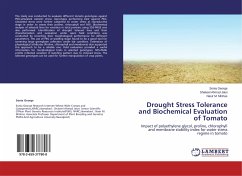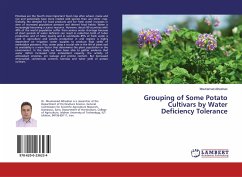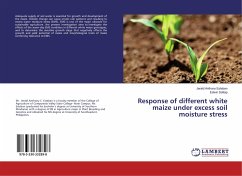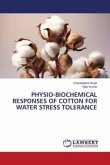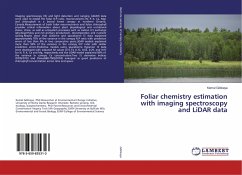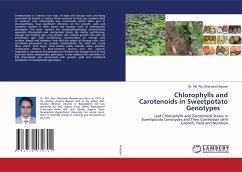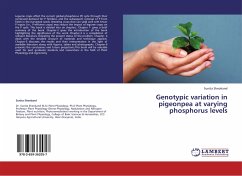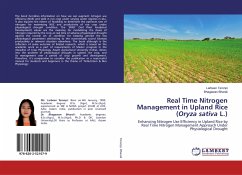The study was conducted to evaluate different tomato genotypes against PEG-simulated osmotic stress. Genotypes performing best against PEG-simulated stress were further subjected to water stress at reproductive stage in order to assess their proline, chlorophyll and MSI. Biochemical analysis of selected lines for variation in total proteins using SDS-PAGE was also performed. Identification of drought tolerant lines and their characterisation and evaluation under open field conditions was conducted by recording their morphological performance for different parameters. The use of PEG at seedling stage found to be a good tool for screening large germplasm collection under lab condition. Estimation of physiological attributes (Proline, chlorophyll and membrane) also supported this approach to be a reliable one. Field evaluation provided a useful information for morphological traits in selected genotypes. SDS-PAGE profile reflected variation in banding pattern due to induced stress. The selected genotypes can be used for further manipulation of crop plants.
Bitte wählen Sie Ihr Anliegen aus.
Rechnungen
Retourenschein anfordern
Bestellstatus
Storno

